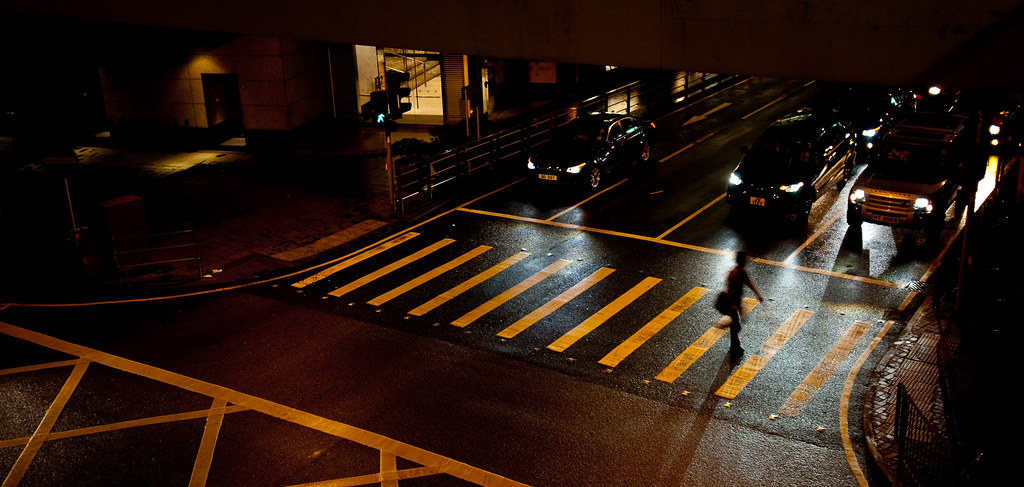This post is about a fledgling, pet theory of mine.
Jess and I regularly go for walks in our neighborhood. There’s a 1-mile loop that takes us across a bridge over the freeway, on a paved path along the shore of a nearby lake, and through a nice neighborhood.
We have to cross exactly one intersection on this route, where the path crosses a four-lane highway with quite a bit of traffic and very few pedestrians. If you hit the cross-walk button, then after some maximum amount of time has passed, the traffic lights will stop the cross traffic and give you the go ahead to cross, even if there are no cars needing to get through.
Forgive the breathless italics, but I always find that mildly amazing.
After several dozen times crossing that intersection, I developed a theory. There are two ways you can measure the civic health of the people in a given area, and the first one is this: how calmly can a single pedestrian cross a signaled intersection with moderate car traffic?
Think about the factors that go into that. A dozen or more motorized steel cages waiting patiently for a couple of unshielded humans to cross four lanes of traffic. In this specific test case, there’s nothing material preventing drivers from just pulling around the pedestrians and continuing on their hurried way; there isn’t even any cross traffic.
So why do they stop? Three reasons:
- Social stigma: it’s generally understood that people in that locale would frown on a driver who pulls through. The biggest reason behind this healthy social pressure is belief that the traffic rules exist for the common good — i.e., everyone knows at some point it will be them or their kids crossing that street.
- There’s also a general expectation that, if a cop were to observe someone disobeying the signal, he or she wouldn’t hesitate to penalize the offender, and to do so without favoritism. Put it another way: I’m not saying cops are immune to favoritism; I’m pointing to the absence of any sizeable class of people who feel the rules are for “other people” and that they can probably get away with minor violations even if observed.
- It’s common expectation that the traffic signals themselves are predictable and reliable — which points to a consistently high level of investment and maintenance in public infrastructure.
All three of these factors are good gauges of “civic health” — how public-spirited are people? How willing are they to give up momentary conveniences for the sake of a framework that makes all of our lives better?
The title is a reference to the game Frogger, at which I excelled as a four-year old.
Finally, I wonder what my theory says about the civic health of San Francisco in 1905? (Perhaps it’s not as applicable since people still weren’t sure what they were supposed to think about automobiles then.)
I mentioned there are two ways to measure civic health. The other is “how rich can you be and still be severely punished for committing a major crime.” But that’s a whole ’nother post.



